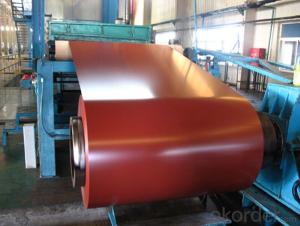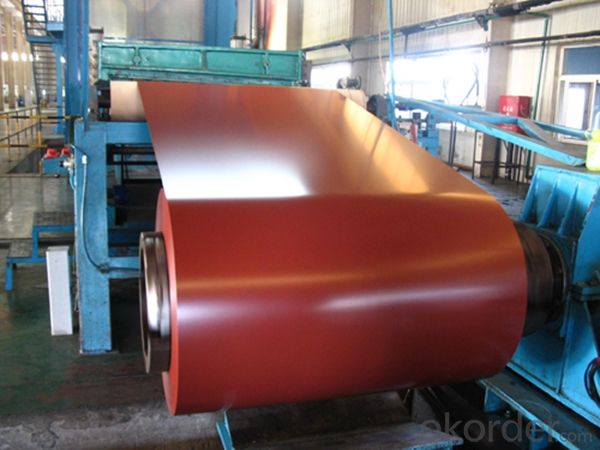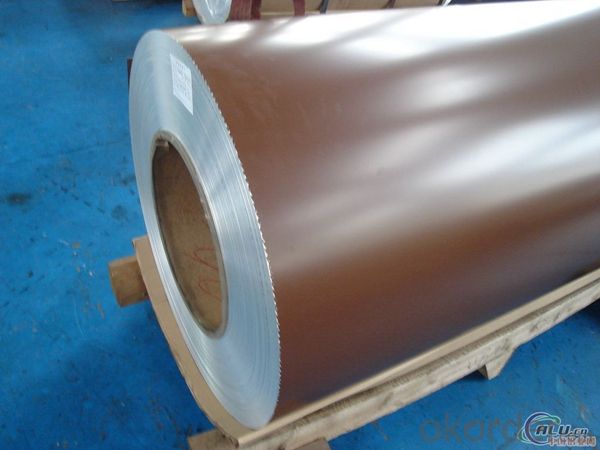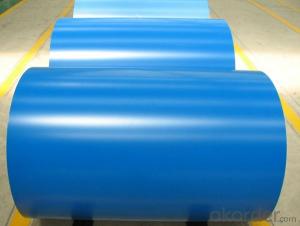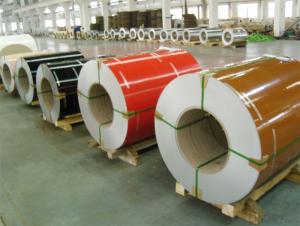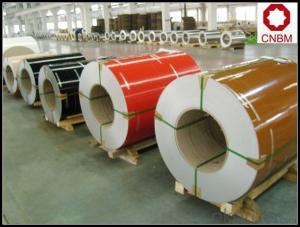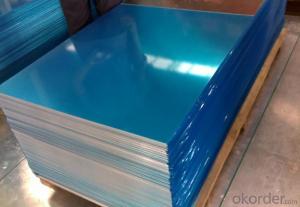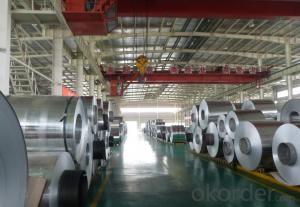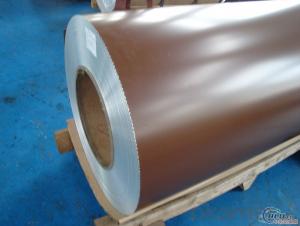Aluminum Sheet Coils - Coating Guarantee PE PVDF Aluminum Coated Sheet
- Loading Port:
- Shanghai
- Payment Terms:
- TT OR LC
- Min Order Qty:
- 5 m.t.
- Supply Capability:
- 10000 m.t./month
OKorder Service Pledge
OKorder Financial Service
You Might Also Like
Specification
1. Specification of Coating Guarantee PE PVDF Aluminum Coated Sheet
characteristics | Application |
1) Super peeling strength | 1) Building exterior curtain walls |
2) Excellent surface flatness and smoothness | 2) Decoration and renovation additions for old buildings |
3) Superior weather, corrosion, pollutant resistance | 3) Decoration of interior walls, ceilings, bathrooms, kitchens and balconies |
4) Even coating, various colors | 4) Shop door decorations |
5) Fireproof, excellent heat and sound insulation | 5) Advertisement board display platforms and signboards |
6) Superior impact resistance | 6) Wallboards and ceilings for tunnels |
7) Lightweight and easy to process | 7) Industrial materials, materials for vehicles and boats |
2. Application of Coating Guarantee PE PVDF Aluminum Coated Sheet
(1).Interior: wall cladding, ceilings, bathrooms, kitchens and balconies, shutters, doors...
(2).Exterior: wall cladding, facades, roofing, canopies, tunnels,column covers , renovations...
(3).Advertisement: display platforms, signboards, fascia, shop fronts...
3. Feature of Coating Guarantee PE PVDF Aluminum Coated Sheet
*Such coil is specially designed to replace aluminum ingot, due to the high export tax of aluminum ingot, the coil has better price than ingot.
*This type of coil can fit customer's remelting furnace just like ingot, no need to make any change to the production line that was previously used for ingot. The standard coil size and weight is very suitable for the feed gate of furnace.
*This type of coil causes less material wastage than ingot when remelted.
*Our coil is made directly from ore, no need to go though the ingot making process, quality is much better than other suppliers who use ingot scrap to make coil.
Be free from Oil Stain, Dent, Inclusion, Scratches, Stain, Oxide Dicoloration, Breaks, Corrosion, Roll Marks, Dirt Streaks and other defect which will interfere with use
4. Certificate:
SGS and ROHS(if client request, paid by client), MTC(plant provided), Certificate of Origin(FORM A, FORM E, CO), Bureau Veritas and SGS (if client request, paid by client), CIQS certificate
5. Image of Coating Guarantee PE PVDF Aluminum Coated Sheet
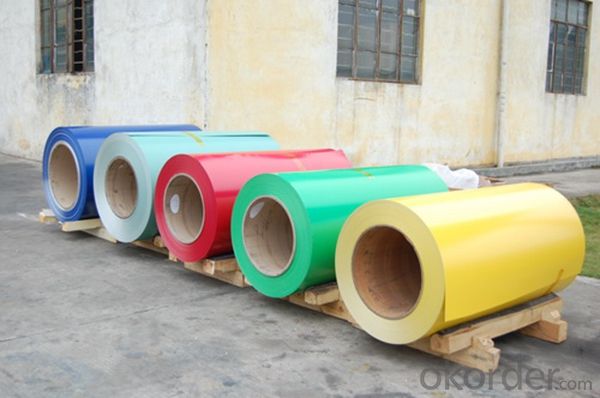
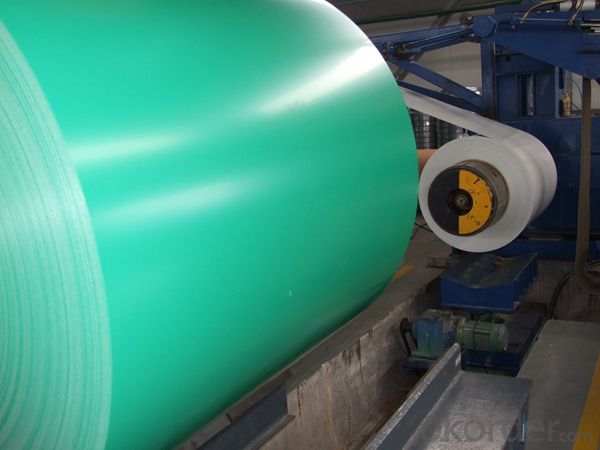
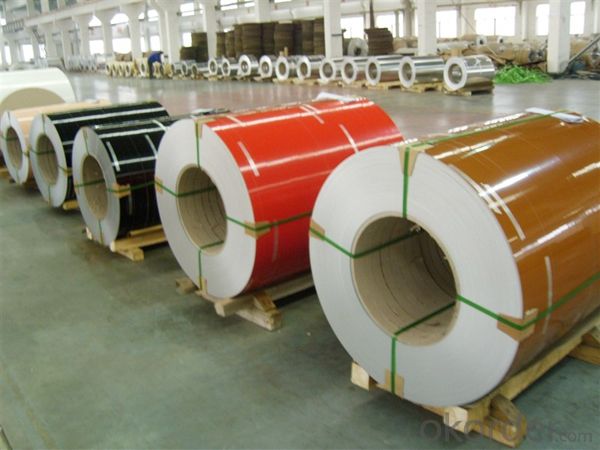
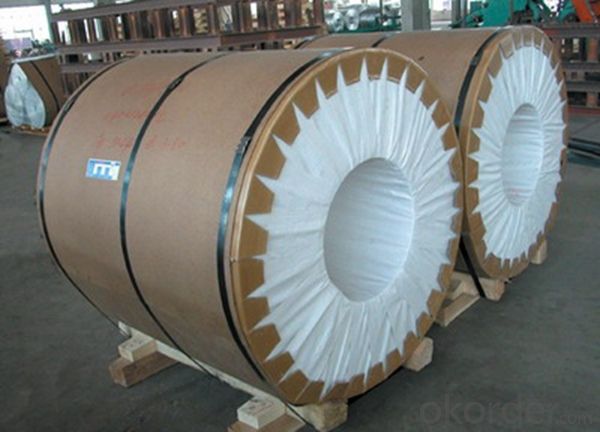
6. Package and shipping of Coating Guarantee PE PVDF Aluminum Coated Sheet
eye to wall
eye to the wall
with wood pallet (wooded case also available)
7. FAQ
1) What is the delivery time?
Dpends on actual order, around 20 to 35 days
2)What is the QC system:
We have QC staff of 20 persons and advanced equipment, each production is with MTC traced from Aluminum ingot lot.
3) What market do you mainly sell to?
Australia, America, Asia, Middle East, Western Europe, Africa etc
- Q: aluminum welding
- Impossible. You need a TIG welder with AC and high frequency. Although you CAN use solid wire MIG with 100% argon shield gas, this is not a job for amateurs. MIG welding aluminum requires professional-grade equipment and several years experience with welding.
- Q: What are the different tempers available for aluminum coils?
- Aluminum coils have various tempers available, each with its own unique characteristics and properties. Let's explore the most common tempers: 1. O Temper, also known as annealed or soft temper, is the softest and most ductile option. It has low strength but high formability, making it ideal for applications that involve extensive forming or bending. 2. The H temper series includes different levels of work hardening, resulting in increased strength and reduced formability compared to the O temper. The H temper range consists of H1X, H2X, H3X, H4X, H5X, and H6X, with each subsequent number indicating a higher level of work hardening. These tempers are commonly used when moderate to high strength is required. 3. The T temper series, also known as heat-treated tempers, involves thermal treatments to achieve a specific combination of strength and formability. The most common T tempers are T3, T4, T6, and T7. T3 and T4 are solution heat-treated and naturally aged, offering a good balance of strength and formability. T6 and T7 are solution heat-treated and artificially aged, resulting in higher strength but reduced formability. 4. The F temper, also known as as-fabricated temper, is obtained through hot or cold working without subsequent thermal treatments. It provides improved strength and hardness compared to the O temper but is lower than the H and T tempers. These various tempers enable the use of aluminum coils in a wide range of applications, including automotive parts, aerospace components, building materials, and consumer goods. The choice of temper depends on the specific requirements of the application, such as desired strength, formability, and corrosion resistance.
- Q: Are aluminum coils suitable for gutter systems?
- Indeed, gutter systems find aluminum coils to be quite suitable. Given its durability, lightweight composition, and exceptional resistance to rust and corrosion, aluminum stands as a favored selection for gutter systems. This cost-effective alternative can endure severe weather conditions while boasting an extensive lifespan. Furthermore, the installation and maintenance of aluminum coils prove to be effortless, rendering them an optimal choice for gutter systems.
- Q: What are the different color options for pre-painted aluminum coils?
- The different color options for pre-painted aluminum coils are extensive and can include a wide range of shades such as white, black, gray, blue, red, green, yellow, and many more. The options are virtually limitless, allowing for customization and versatility in various applications.
- Q: Can aluminum coils be used in the production of sporting goods?
- Yes, aluminum coils can be used in the production of sporting goods. Aluminum is lightweight, durable, and corrosion-resistant, making it suitable for various sports equipment like baseball bats, tennis rackets, golf clubs, and even bicycles. The use of aluminum coils allows manufacturers to create high-quality and high-performance sporting goods.
- Q: Can aluminum coils be customized or fabricated into specific shapes?
- Indeed, it is possible to customize or fabricate aluminum coils into desired shapes. Aluminum possesses remarkable formability and can be effortlessly shaped through diverse fabrication techniques such as rolling, bending, stamping, and extrusion. By employing these processes, aluminum coils can be converted into specific forms like sheets, plates, tubes, and profiles to cater to the unique demands of different applications. Moreover, aluminum can also be welded, joined, or cut to further tailor its shape and dimensions. The adaptability of aluminum coils in terms of customization renders them highly favored across various industries, including automotive, aerospace, construction, and manufacturing.
- Q: Describe the steps involved in the production of aluminum coil.
- <p>The process of making aluminum coil involves several key steps. Initially, raw materials, typically bauxite ore, are mined and then refined to produce aluminum oxide. This aluminum oxide is then reduced to aluminum metal through the Hall-H茅roult process, where it is dissolved in molten cryolite and electrolyzed to extract aluminum. Once the aluminum is produced, it is melted and then continuously cast into large slabs or billets. These slabs are then hot or cold rolled to reduce their thickness and width, forming coils. The coils are annealed to improve their mechanical properties and surface finish. Finally, the aluminum coils are cleaned, inspected, and cut to size before being packaged and shipped to customers for various applications such as construction, automotive, and packaging.</p>
- Q: How do aluminum coils contribute to lightweight construction?
- Due to its properties as a metal, aluminum plays a crucial role in lightweight construction. Its low density sets it apart from other metals like steel or copper, making it significantly lighter. When formed into coils, aluminum increases its surface area, resulting in more efficient heat transfer and distribution. The utilization of aluminum coils in various industries such as automotive, aerospace, and construction leads to a notable reduction in overall weight. This reduction offers several advantages, including enhanced fuel efficiency in vehicles, increased payload capacity in aircraft, and easier handling and installation in construction projects. Furthermore, the lightweight nature of aluminum coils enables designers and engineers to develop more innovative and energy-efficient designs. With less weight to support, thinner and lighter materials can be used for other components, resulting in additional weight savings. This not only saves costs during manufacturing and transportation but also reduces environmental impact. Moreover, aluminum coils possess excellent corrosion resistance, making them ideal for outdoor applications. Their ability to resist rust and corrosion adds to their durability and longevity, ensuring that lightweight structures made with aluminum coils can withstand harsh environmental conditions. In conclusion, aluminum coils contribute significantly to lightweight construction by providing a durable and lightweight material. This enables designers and engineers to create more efficient and sustainable structures, vehicles, and products. The use of aluminum coils not only reduces the weight of the overall construction but also offers benefits such as improved fuel efficiency, increased payload capacity, and cost savings.
- Q: Can aluminum coils be used in extreme temperature conditions?
- Yes, aluminum coils can be used in extreme temperature conditions. Aluminum has a high melting point of 660.32°C (1220.58°F) and can withstand extreme heat without deforming or melting. Additionally, aluminum has excellent thermal conductivity, allowing it to quickly transfer heat away from the coil. This makes it suitable for various applications, including air conditioning, refrigeration, and heating systems that may encounter extreme temperature conditions. Moreover, aluminum coils are lightweight and corrosion-resistant, making them a preferred choice in many industries.
- Q: What are the different alloys used in aluminum coils?
- Some of the different alloys used in aluminum coils include 1100, 3003, 5052, and 6061.
Send your message to us
Aluminum Sheet Coils - Coating Guarantee PE PVDF Aluminum Coated Sheet
- Loading Port:
- Shanghai
- Payment Terms:
- TT OR LC
- Min Order Qty:
- 5 m.t.
- Supply Capability:
- 10000 m.t./month
OKorder Service Pledge
OKorder Financial Service
Similar products
Hot products
Hot Searches
Related keywords
